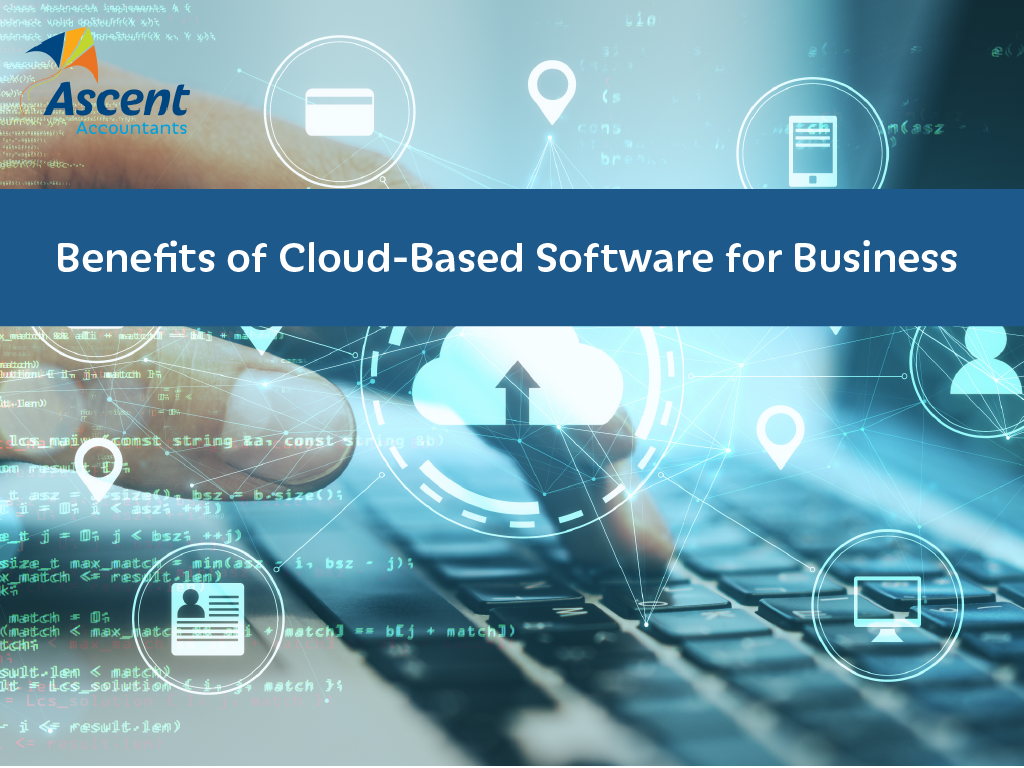Benefits of Cloud-Based Software for Business

The basics
Cloud software delivers software services through the Internet (like Xero), as opposed to software delivered through your device (like Microsoft Excel). This includes tools and applications for data tracking and storage, networking, project management, and more.
The benefits
1. Flexible
Many business software tools can grow with your business. You can start with basic functionality, and as your business evolves and expands, your software can too. It’s no different with cloud-based software. These softwares are also flexible in that they’re constantly updating and improving.
2. Cost-effective
This is definitely one of the most significant advantages of cloud software. Cloud software uses remote servers, so there’s no need for in-house storage equipment (you can go from ten physical filing cabinets to unlimited digital cloud storage) and application requirements. Additionally, cloud-based services typically use a pay-per-use basis, which means they’re cheaper to use and you only pay for what you need.
3. Accessible
Cloud software is accessible anywhere. As long as your electronic device is connected to the web, you have access to the information stored on your cloud-based software — and it doesn’t have to be the same device every time. Say your laptop breaks and you need to borrow a colleague’s, or you’re working abroad from an Internet Café — your data, work, and applications are available from any device with an Internet connection.
4. Multi-User
Multiple-users can access your cloud-based software (with your permission) so you can get addition support. For example, your Accountant or Bookkeeper can be granted access to streamline your financial systems — they can make transparent updates directly to your database without the need for lengthy phone calls or email trails.
Wondering which software is right for you?
With so many cloud-based software options available to business owners, there question isn’t, “should I use it?”, but “which one should I use?”. We can help.
Need help with your accounting?








